The seventh European Parliament of Enterprises opened on 4 November with a pointed reminder from Eurochambres President Vladimír Dlouhý and Parliament Vice-President Victor Negrescu: market access must improve if Europe wants growth and investment.
Dlouhý applauded entrepreneurs’ resilience through successive crises but criticised the slow delivery on the Draghi Report and other EU competitiveness plans. “This is not a fashion show — this is real life,” he warned, pressing national governments to stop blocking progress.
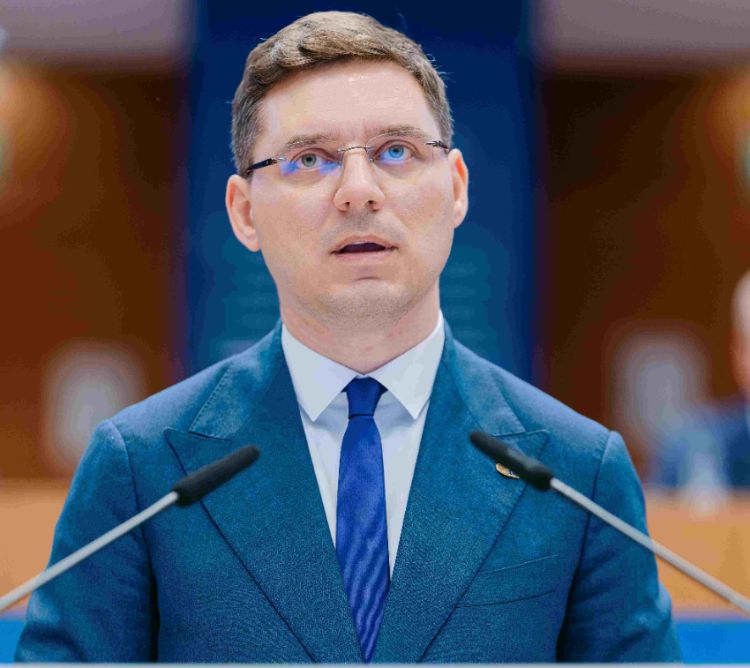 Victor Negrescu (Romania, S&D), Vice-President of the European Parliament
Victor Negrescu (Romania, S&D), Vice-President of the European Parliament
Following a solemn moment during which the Assembly stood up when the European anthem was played, MEP Jörgen Warborn opened the first session on the topic of the European trade strategy in a global changing landscape by speaking as “a voice for the innovators, the job creators, the risk takers”.
He called for cutting costs for business through “one-in, two-out” simplification measures and more SME-friendly free trade agreements. He pressed to restart talks with Australia “in the microwave,” accelerate negotiations with India, Malaysia and the Philippines, and “show some love for the WTO.”
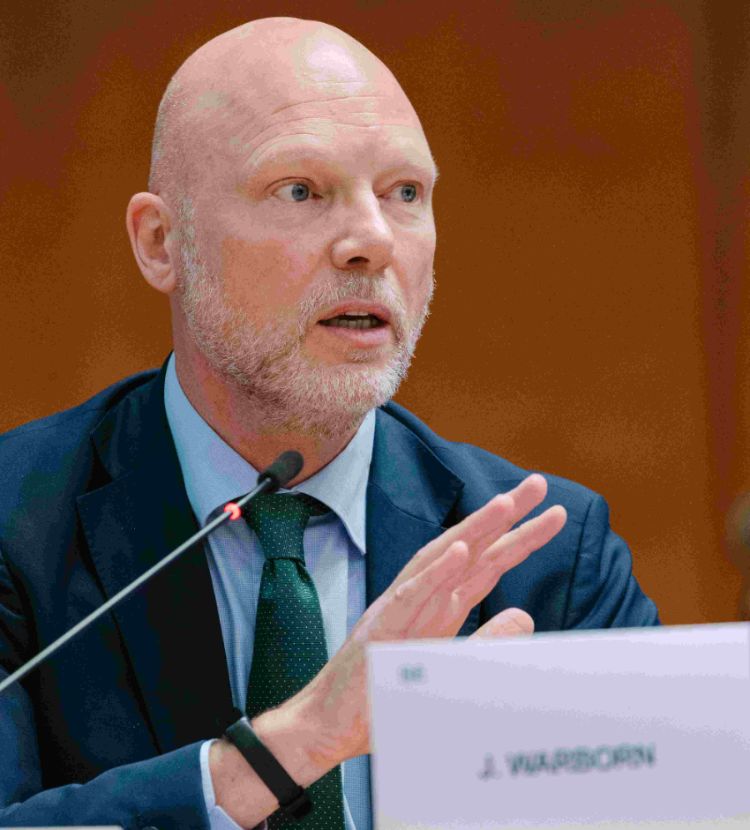 MEP Jörgen Warborn (Sweden, EPP)
MEP Jörgen Warborn (Sweden, EPP)
As it does after every session, the Assembly then had the opportunity to vote on various issues relating to the concerns, requests and priorities of the business world. The room resoundingly supported the need for Europe to develop a more pragmatic approach with third countries, and that free trade agreements are not yet helping businesses navigate geopolitical risk. Supply-chain bottlenecks linked to tensions were felt by an overwhelming majority of participants.
When given the floor, entrepreneurs from across Europe then seized the opportunity to advocate for faster commercialisation of Europe’s own innovations, incentives for large supply chains to adopt EU tech, and building strategic industries, particularly defence, within Europe to keep value and jobs at home.
Joanna Szychowska, Director in the European Commission’s Directorate-General for Trade and Economic Security, welcomed the exchange, cautioning there is “no coming back to status quo” in a world of fractured value chains. Europe, she concluded, must broaden and adapt its network of agreements, staying open but “doing it differently” with reliable partners.
The discussion then continued with a session on issues of market accessibility for growth and investment, to debate targeted regulatory burden reduction measures and how these can foster a more agile business environment and eliminating the barriers to the free movement of goods, services and people.
MEP Anna Cavazzini, Chair of the IMCO Committee, opened the discussion by calling today’s environment “turbulent,” citing U.S.-China shifts and climate pressures, but insisted “the main answer lies in a strengthened single market.” She urged concrete feedback on barriers, suggested that more regulations were needed for consistent enforcement, and called for progress on the Capital Markets Union to unlock investment for startups and scaleups.
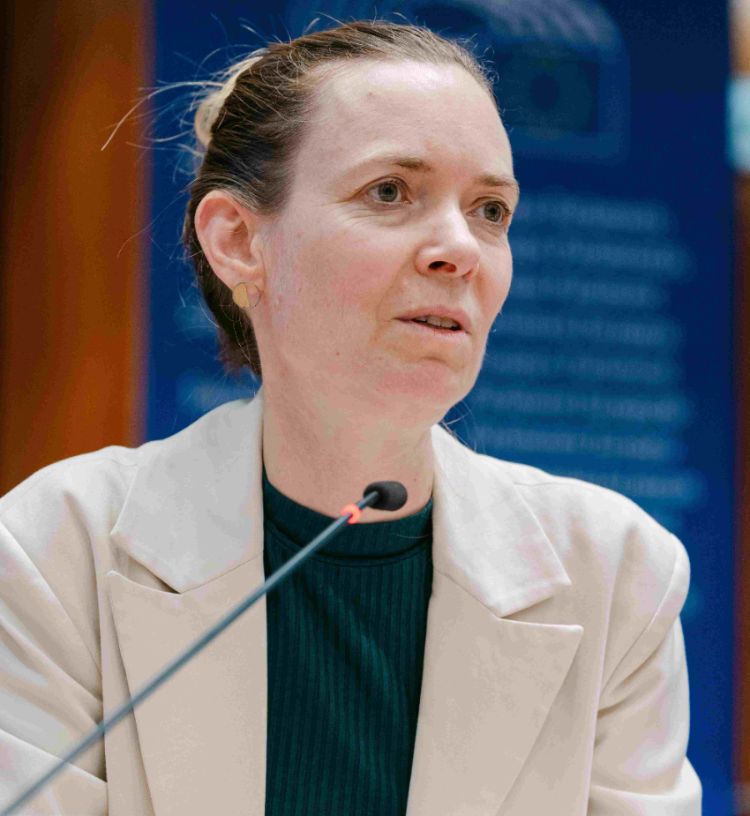 MEP Anna Cavazzini (Greens, Germany), Chair of IMCO
MEP Anna Cavazzini (Greens, Germany), Chair of IMCO
Participants were unequivocal in rallying the idea that the single market is not sufficiently integrated and that enforcement against breaches should be strengthened. While agreeing that stimulating the job market will require an extended recognition of professional qualifications, entrepreneurs strongly agreed that maintaining the competitivity of businesses will require AI integration strategies.
MEP Dóra Dávid hailed “amazing consensus,” pledging to simplify rules and create an enabling environment so SMEs “thrive in Europe and not elsewhere.” She urged more AI sandboxes, clearer guidance on the AI Act for SMEs, and using the next EU budget with geographical balance given that “a rising tide lifts all boats.” She also pressed for faster enforcement against unsafe imports.
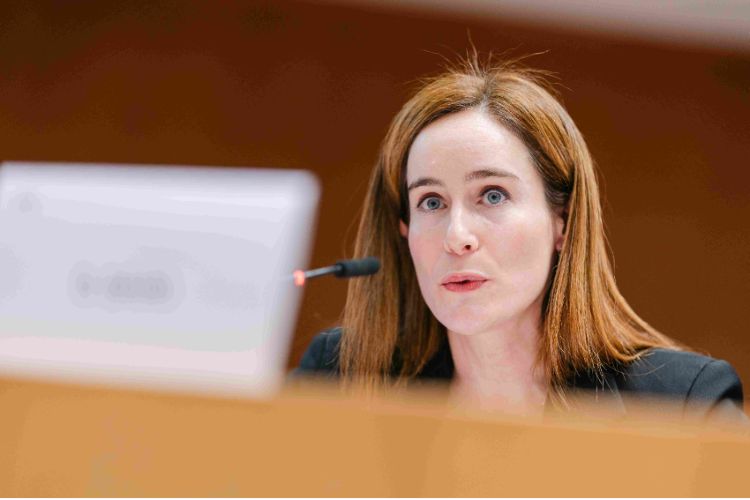 MEP Dóra Dávid (Hungary, EPP)
MEP Dóra Dávid (Hungary, EPP)
European business representatives asked bluntly: if we know the solutions, why are we slow to deliver? They called for practical tools, better cross-border finance via the Capital Markets and Banking Unions, and tailored flexibility for island and smaller economies so the single market works in practice.
The final session tackled how to rebuild Europe’s competitiveness by making rules clear and simple so entrepreneurs invest in clean tech and circularity instead of paperwork. Participants and senior policymakers discussed affordable energy, easing access to sustainable finance, and shaping a pro-innovation framework to prevent deindustrialization and deliver climate goals.
MEP Christian Ehler described the “historic process” of revisiting legislation via the omnibus files, which he referred to as a “reverse legislation”, to adapt to changing realities, while warning against discarding the regulatory foundations of the world’s largest single market. The task, he said, is faster adaptation without losing what made Europe competitive.
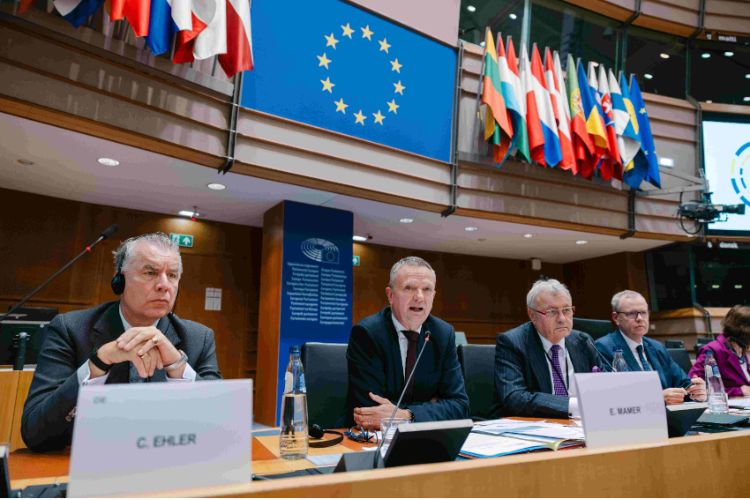 MEP Christian Ehler (Germany, EPP) and Eric Mamer, Director-General for Environment, European Commission
MEP Christian Ehler (Germany, EPP) and Eric Mamer, Director-General for Environment, European Commission
The entrepreneurs urged Europe to wake up on scale and speed, cut bureaucracy, and complete the single market so firms can expand across borders as seamlessly as competitors in the U.S. and Asia. Votes underlined the urgency: a vast majoritysaid that high energy costs are harming competitiveness and green investment, and that businesses have felt no reduction in regulatory burden over the past year. While backing a strong demand for EU clean tech, participants also underlined that sustainability reporting does not enhance either their competitiveness or their green transition.
Eric Mamer, European Commission Director-General for Environment, underscored that the “best simplification” is replacing 27 rules with one European rule, especially for the circular economy and waste flows, and urged a continual, practical dialogue with business: “your presence today should not be a unique event.”
Bringing the day full circle, Vladimír Dlouhý saluted the Ukrainian business delegation’s resilience and reiterated a dual message: Europe needs fair, open trade, and faster, simpler decision-making. “Let’s hope Europe finds the internal strength to move ahead to compete with other developed regions.”, he concluded.
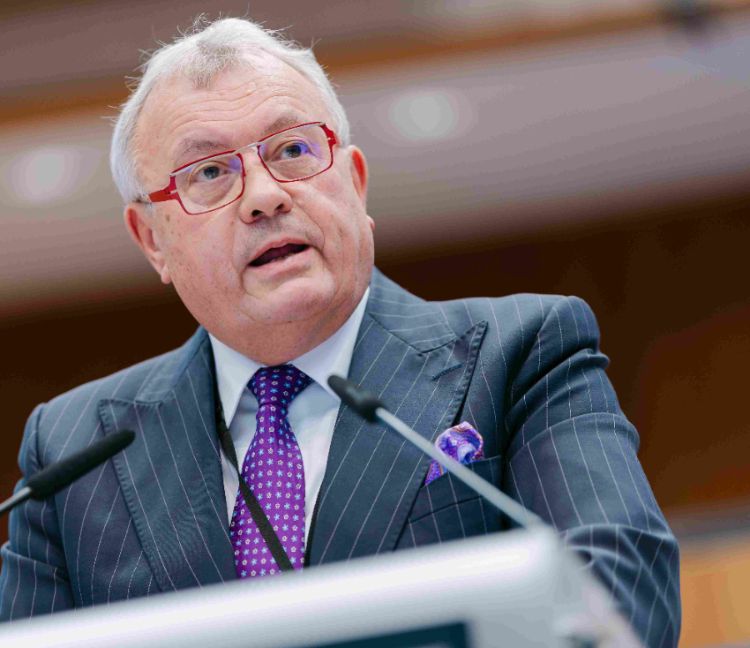 Vladimír Dlouhý, President of Eurochambres
Vladimír Dlouhý, President of Eurochambres
The through-line from every session was strikingly consistent: simplify and enforce the rules we have, complete the single market, finance the scale-up of European innovation, and accelerate a modern, pragmatic trade agenda. The entrepreneurs’ verdict, captured in vote after vote, turns that consistency into a mandate. Now, they argue, comes the test: translating European Parliament of Enterprises consensus into policy delivery.
The European Parliament of Enterprises is the flagship event for European businesses, bringing the voices of entrepreneurs directly to the heart of EU decision-making in Brussels
Sign up to The Parliament's weekly newsletter
Every Friday our editorial team goes behind the headlines to offer insight and analysis on the key stories driving the EU agenda. Subscribe for free here.